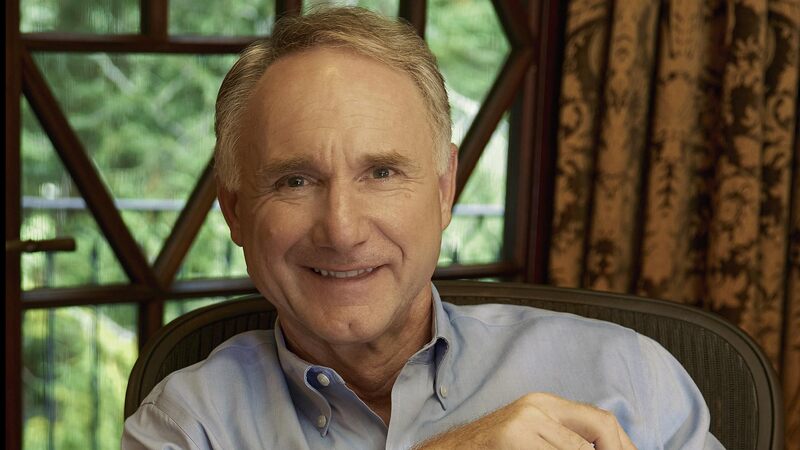You are viewing your 1 free article this month. Login to read more articles.
The great leveller
Audiobooks are crucial for accessibility, so why are they still seen as an optional extra?
Which format do you prefer to read your favourite books in – paperback, hardback, e-book or audio? Last year, I was pleased when audiobooks of my first two novels, My Perfect Sister and Her New Best Friend, were published by Embla, because readers had previously contacted me to ask for them. While it was both strange and exciting to listen to an actor reading out my words, I was delighted that the audio versions would enable more people to access my books.
For most of us, listening to a book rather than reading an e-book or physical copy is a matter of convenience. It’s a form of entertainment that suits a long commute, doing the cooking or, my personal favourite, wallowing in a hot bath. Audiobook sales are on the rise, with The Bookseller reporting last November that in the first seven months of 2023 the audiobook market grew 6% in volume and 12% in value. Leisure habits we gained during the Covid-19 pandemic lockdowns have stuck, and, with Spotify’s recent deal with the UK’s leading publishers to rival Audible, the market looks set to carry on its upward trajectory.
It’s important though to remember that for some readers audiobooks are the only way to access fiction and non-fiction. When I asked members of the disabled and chronically ill community, numerous people told me that they rely on audiobooks because they can’t physically turn the pages of print books due to a physical or energy impairment disability.
Yet the playing field for audiobooks and print books isn’t level. Only a selection of titles have an audiobook release, limiting choice for users who may want to access more niche works rather than the top titles from the big five. One reader who relies on audiobooks said: "I get sick of asking when the audiobook will be out or if a book will be on audio. Many books I want to read are not on audio, and that’s frustrating." While e-books are relatively cheap to produce once a publisher has a digital file of a manuscript, audiobooks require a narrator and professional recording services, something that can be prohibitively expensive for smaller publishers.
In May 2020, the UK abolished VAT on e-books; however, it is still payable on audiobooks, a fact that’s regarding as a ‘listening tax’ for disabled and chronically ill people who are unable to read an e-book or physical book. When I contacted HM Treasury, a spokesperson told me they keep tax policy under review and they are "committed to supporting those with disabilities who may struggle to access physical books. That’s why we provide access to audiobooks through local library services."
The playing field for audiobooks and print books isn’t level. Only a selection of titles have an audiobook release, limiting choice for users who may want to access more niche works
Libraries do a brilliant job serving customers with different access needs, but some of the readers I spoke to pointed out that using them is not always possible. One woman said she was unable to register with her local library service because she cannot physically leave her house and the library requires her initially to attend in person. Another, who relies on the format due to concentration difficulties, said she found the library’s digital audiobook service difficult to set up and there was a limited availability of books she wanted to listen to. She ended up paying for a subscription with a well-known audiobook company. "It quickly adds up as an extra expense," she added.
An alternative option for partially sighted and blind people is the Royal National Institute of Blind People’s free Talking Books service. "Audio is now being recognised as an equally important method of reading, with a greater proportion of published print books being produced in this accessible format," a spokesperson said. "RNIB receives thousands of audiobooks a year now from publishers, including the biggest names in literature, which are available on the day of publication." The charity has around 40,000 audio books available in CD, USB, app or Alexa Skill formats. It’s also campaigning to axe the audiobook VAT tax.
June Bowden, an RNIB Talking Books user, says the service has made a huge difference to her life. "I’m in a lot. One reason I love audiobooks is that they are online. I can download them and they’re also now available on Alexa. I would be really bored if I didn’t have new books to read." It would be a game changer if there were funding for other charities to offer this free service.
All of us connected to the publishing industry know that books can change lives. Everyone, whatever their disability or illness, should be able to take advantage of the audiobook boom and access to new and classic books. When they are marketed well, with fair contracts and royalties for authors, audiobooks also provide a valuable income stream for authors and publishers. If reading is truly to be accessible to all, and have parity with print and e-book formats, audiobook versions of a title should be seen as a ‘must’, rather than a ‘nice to have’.

















